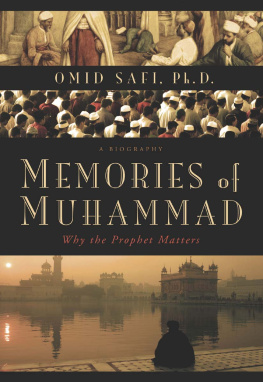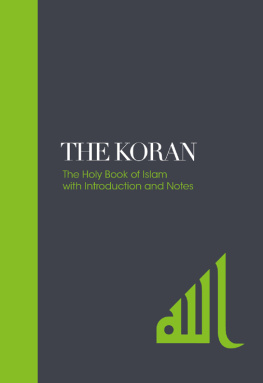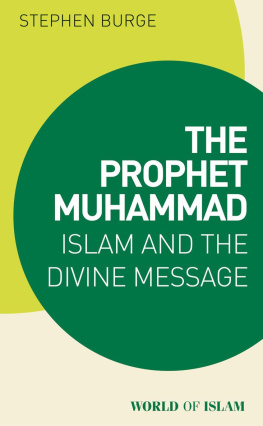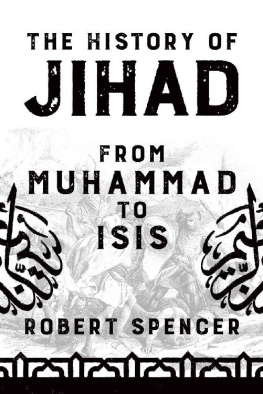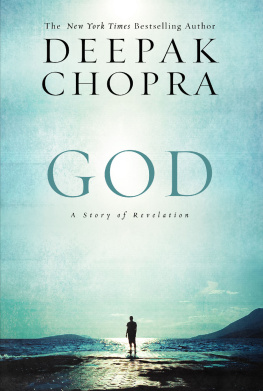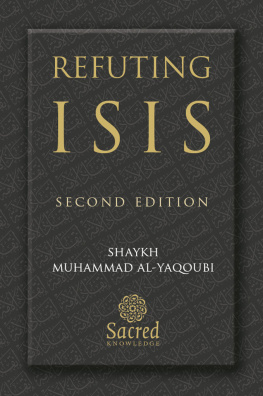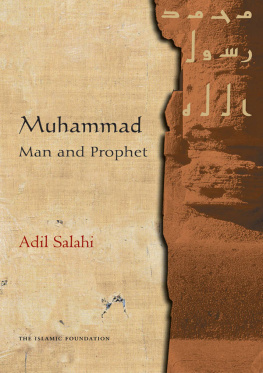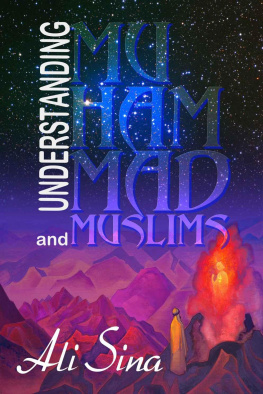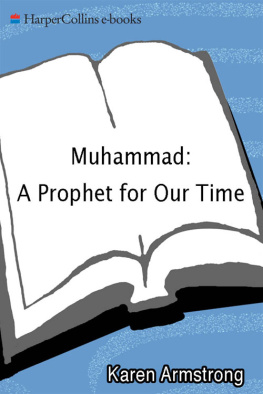A LOT OF PEOPLE ARE having a Muhammad problem these days.
Its nothing new. People have been attacking Muhammad for 1,300 years, some because of their religious beliefs and others because of their political convictions. He was attacked by his own family during his lifetime for his progressive views, in medieval times he was attacked by authors like Dante and Martin Luther, and more recently we have all read the headlines about the infamous Danish cartoon controversies in which a Danish newspaper, in response to terrorist acts done in the name of Islam, published editorial cartoons depicting the Islamic Prophet in ways considered by many blasphemous and Islamophobic. Before we can deal with how Muslims themselves have come to remember, revere, and contest the memory of Muhammad, we must deal with these many outside attacks, which are important not only for what they reveal about non-Muslims ability to understand the significance of one of the leading figures in human history, but also because Muslims today are exceedingly concerned, even defensive, about what others say regarding their Prophet. In short, what is said about Muhammad affects all of us, regardless of our faith.
It has become commonplace to acknowledge that we live in an interconnected world. Yet it is not just goods (the clothes on our backs, oil, cars) and people (immigrants, refugees) and ideas (human rights, President Obamas personal narrative, received with thunderous applause by Muslims, is a powerful demonstration of the ways in which the American story and Muslim narratives are irrevocably intertwined now.
In the full human community worldwide, there are some 1.3 billion Muslims. Whether some of us think of ourselves as Americans first or citizens of one shared planet first, it is simply part of being an educated citizen to have accurate knowledge about the faith of Islam. Muhammad stands at the center of this faith, and there is no way of being familiar with Islam without taking a long, hard, and close look at this figure who is so beloved by Muslims and yet often vilified by certain non-Muslims.
Today many of the atrociously offensive and polemical statements against the Prophet Muhammad come from some Christian leaders who seem persuaded that in tearing down the faith of other human beings they are building up the faith of their own flock. The former
These have not been isolated episodesthey have been repeated in the most public of settings. Another prominent Christian leader, Pat Robertson, appeared on Fox News on September 18, 2002, to declare that the Prophet Muhammad was an absolute wild-eyed fanatic. He was a robber and a brigand. I mean, this man [Muhammad] was a killer. Robertson went on to call Islam a monumental scam, evil, and demonic. Islam or Muhammad are made, the treatment is different. At best, when these Christian leaders call Muhammad a terrorist or the Antichrist, they are seen as exercising their free speech rights rather than as being purveyors of hate speech. At worst, there is perhaps a nagging suspicion among some listeners that these statements contain a kernel of truth. In the beginning decade of the twenty-first century, it seems undeniable that at least some Christians (and some champions of Western hegemony) have a Muhammad problemand thus an Islam problem.
The reason for this problem is not hard to fathom. With the exception of the most bigoted, most Christians today, including the Catholic and Protestant authorities, have rightly come to see that Muslims, Jews, and Christians all worship the same One God and that all believe in the ideas of revelation, redemption, righteous ethics, and accountability. For some Christians, however, the idea of God having reached out to humanity after Christ remains an enigma. Muhammad remains for these Christiansthough not all of thema theological challenge. In lashing out against Muhammad, they seek to affirm the special relationship they believe God has established with humanity through Christ. Yet this vehemence has prevented them from being able to see Muhammad in the light of history and faith and thus understand Islam on its own merits.
W E KEEP TALKING PAST one another when it comes to Muhammad, and this seems to have resulted in a cognitive dissonance. Try this out the next time you are in your local bookstore: walk over to the Islam shelf and have a look at all the volumes about the Prophet Muhammad. Even a cursory look indicates that our public discourse about the Prophet Muhammad seems to suffer from a split personality: on the one hand, we see books by pious Muslims (and sympathetic non-Muslims) proclaiming Muhammad as one of the great teachers of humanity and one of the great divinely sent prophets. hand, we see other titles that promise to provide the reader with the truth about Muhammad but in fact are marred by a host of inaccuracies, prejudices, and flat-out lies. These titles present Islam either as a demonic heresy designed to mock Christianity or as an aggressive ideology intent on world domination or destruction. Many of these books are composed by writers who have no expertise in Islam, no familiarity with Islamic history, and no command of the languages necessary to acquire such understanding, such as Arabic and Persian. For that matter, many of them also seem woefully unaware of the problematic aspects of the history of Judaism and Christianity, not to speak of the racism and other ills of Western societies. Yet their lack of qualifications has not prevented these authors from engaging in a great deal of Muhammad-bashing and Islam-bashing.
In a sad display, we are even witnessing the recycling of many hackneyed clichs and insults that a century or two ago were directed against Jews now being directed against Muslims. In particular, in some of the same ways in which Jews were questioned regarding their loyalties to Europe as well as to Judaism, many now view Muslims with great suspicion and question their loyalties as citizens. Muslims have become the target of a new version of anti-Semitism. One of the most bitter and ironic aspects of this new anti-Semitism is that at least some of these attacks are being led by largely secular Jews whose ultimate concern is the preservation of the current status of the state of Israel, with all its profoundly problematic policies toward the native Palestinian population there. the conclusions that one can reach is that often the prejudice against Islam is not the actual disease. It is the symptom of a deeper malaiseprejudice and racism.
Yet Muhammad-bashing is not a new phenomenon. The last decades of the twentieth century and the beginning of the twenty-first have seen both the continuation of old polemics against Muhammad and the deployment of new ones. One thousand years ago, the polemics were about violence, sex, and heresy. Today the polemics are still primarily about violence, sex, and heresy. One cannot help but wonder at how unoriginal these polemics have been over the course of the last thousand years. If the subject matter was not so offensive, perhaps one could joke that in one thousand years they could have come up with a new polemic!
In this volume, we deal extensively with the context of Muhammads lifeand yes, his battles. We address his marital life, which Islamophobes and polemicists so frequently characterize as hedonistic and perverted. We also explore the relationship between Islam and other religions, the difficulty that Christians have had in accepting a divine dispensation after Christ, and how Muslims have dealt with earlier divine revelations. These are all important topics that deserve to be treated at length and with accuracy and scholarly rigor. We strive in this volume to stop talking past one another and begin talking with one another.

